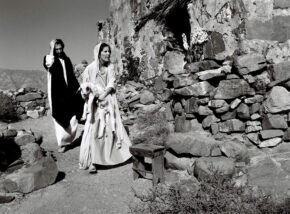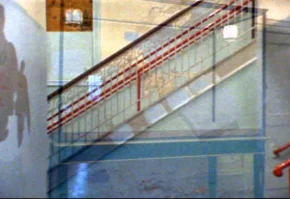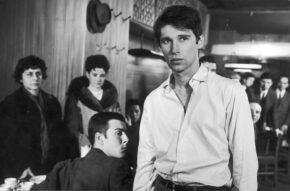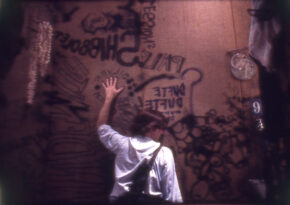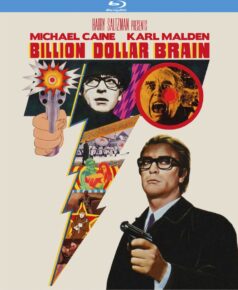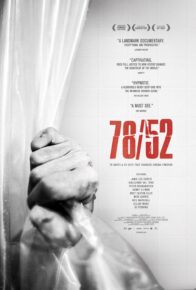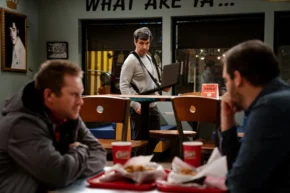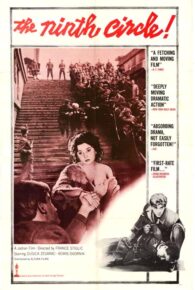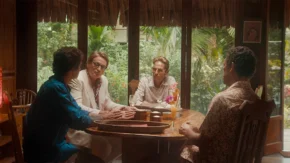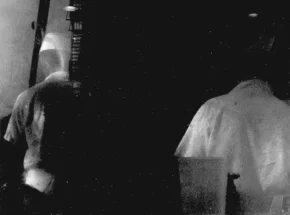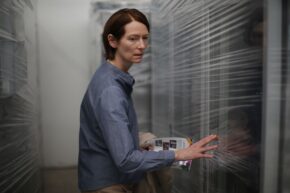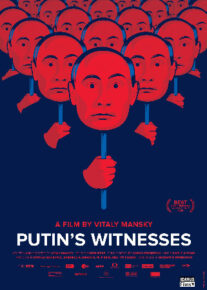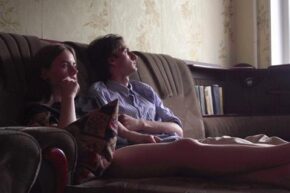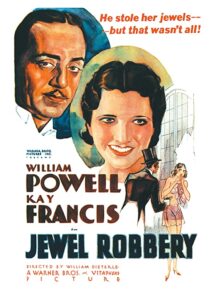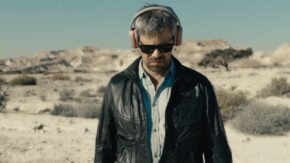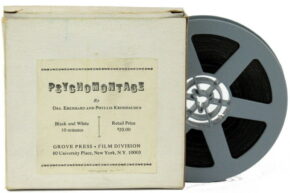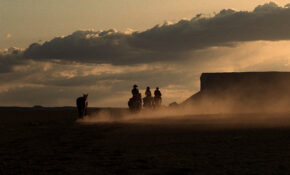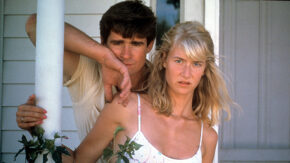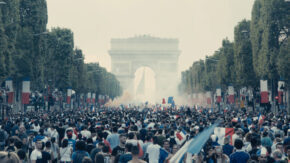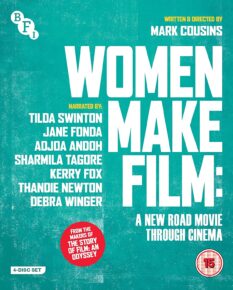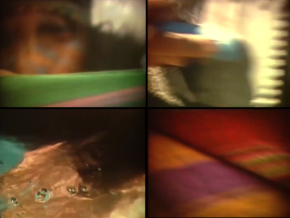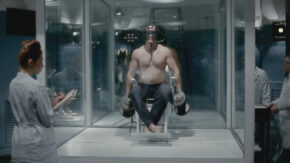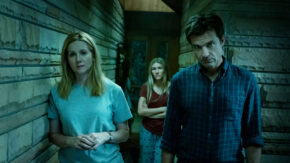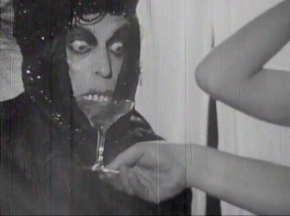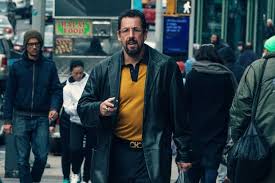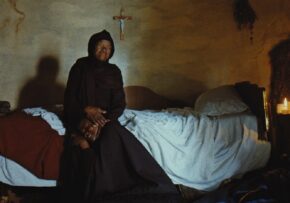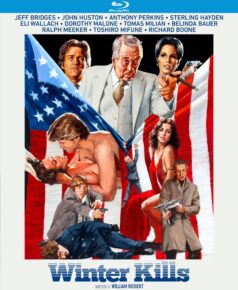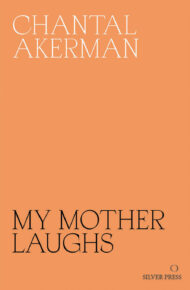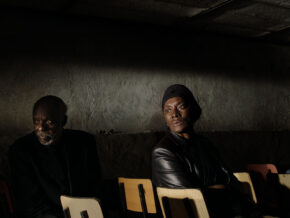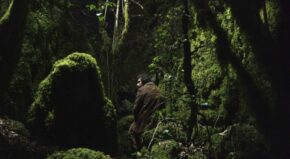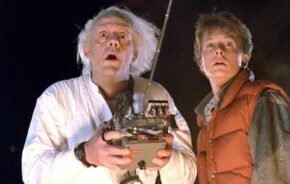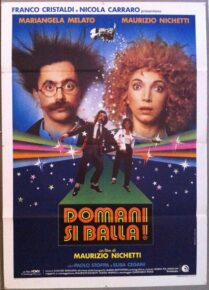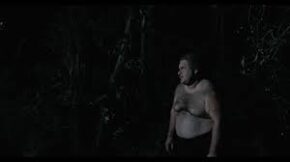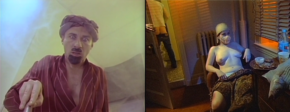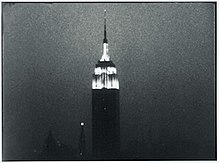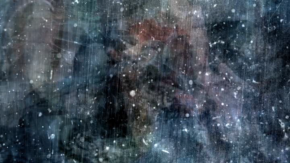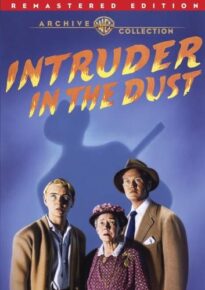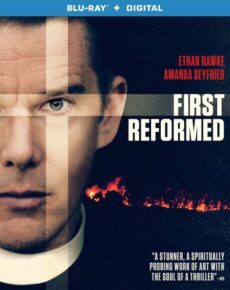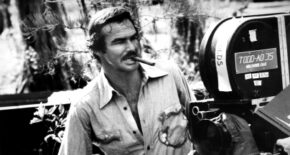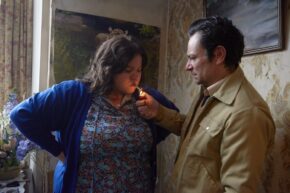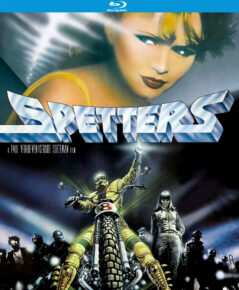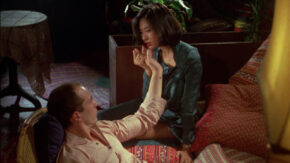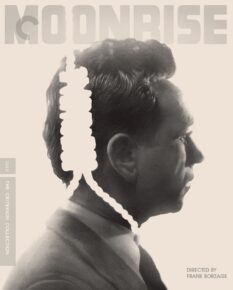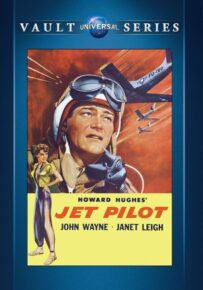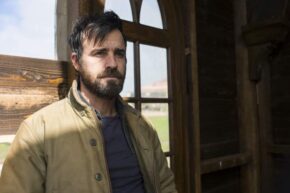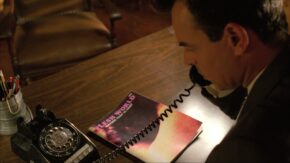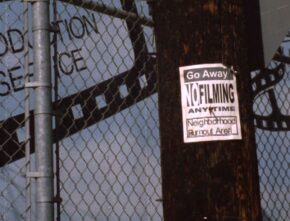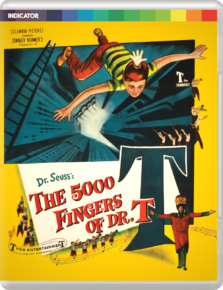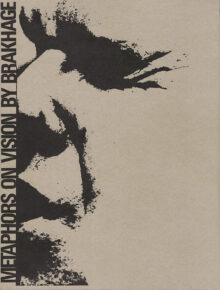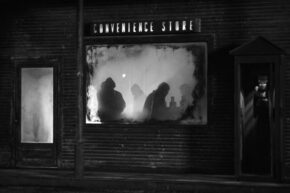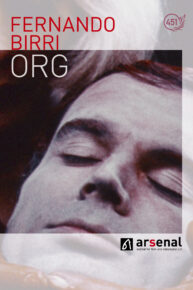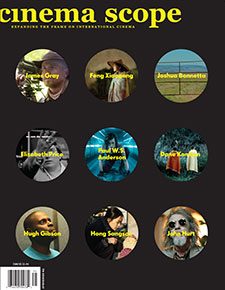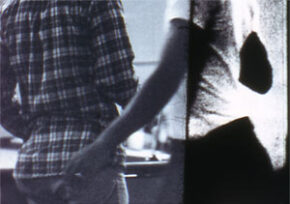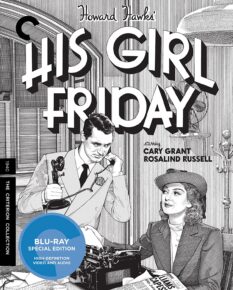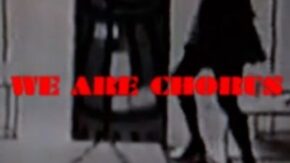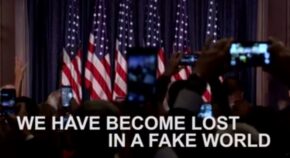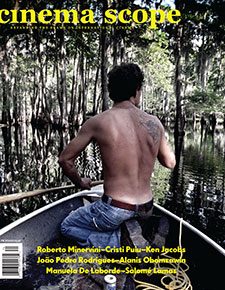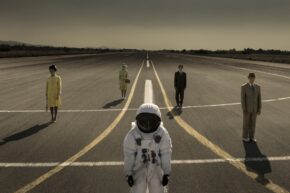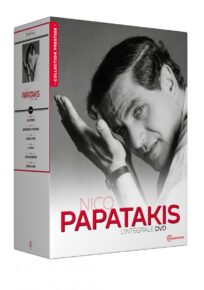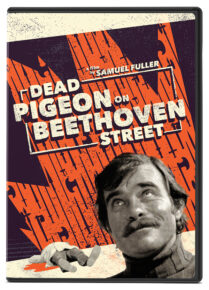Columns
Issue 97 Editor’s Note
By Ed | 01/23/2024 | Columns, CS97, From Cinema Scope Magazine
I feel like I’ve explained enough in this space over the last year, so that announcing this is the final issue of Cinema Scope is in no way surprising. But let me reiterate that the time has long passed to envision a way of making this magazine sustainable financially without begging for money, or sustainable emotionally without driving me to a premature death...
Read More → Out of Time: The Videos of Tulapop Saenjaroen
By Jesse Cumming | 01/18/2024 | Columns, CS97, Film - Art, From Cinema Scope Magazine
Few contemporary artists feel as attuned to late capitalism—and its insidious means of extracting both our time and resources—as Saenjaroen, whose works offer means of escape from or refutation of these forces.
Read More → The Sense of the Past: Terence Davies (1945–2023)
By Lawrence Garcia | 01/18/2024 | Columns, CS97, Deaths of Cinema, From Cinema Scope Magazine
To describe a film as being “about memory” is almost as cliché as to say that it is “about time.” Few subjects are thought to be more suited to a temporal medium defined by its mechanical recording apparatus. Yet the films of the late Terence Davies are to my mind the rare works actually deserving of such a description.
Read More → The World in Focus: Vincent Grenier (1948-2023)
By Michael Sicinski | 01/18/2024 | Columns, CS97, Deaths of Cinema, From Cinema Scope Magazine
While I would never compare the end of a magazine’s run with the end of a person’s life, there is a painful appropriateness to the fact that I am eulogizing my friend, filmmaker Vincent Grenier, in the final issue of Cinema Scope. Grenier’s work represents a tactile, phenomenological cinema that is not very popular with current tastemakers.
Read More → Dead Slow Ahead: On Joe Pera
By Kate Rennebohm | 01/18/2024 | Columns, CS97, From Cinema Scope Magazine, TV, TV or not TV
Enter Joe Pera, the comedian, actor, director, writer, and producer whose self-financed, self-produced, and self-released comedy special, Joe Pera: Slow & Steady, dropped on his YouTube channel in early October.
Read More → Global Discoveries on DVD: Now or Never
By Jonathan Rosenbaum | 01/18/2024 | Columns, CS97, DVD Reviews, From Cinema Scope Magazine
In what will likely be my last column in these pages, I’ve mainly tried to highlight releases and films that I’ve been meaning yet failing to watch for ages, following the assumption that it’s now or never. As most of my examples make clear, this avoidance has something to do with the unhealthiness or pessimism these films tend to leak from every pore.
Read More → Pale Shibboleth: Will Hindle’s “Chinese Firedrill”
By Chuck Stephens | 01/18/2024 | Columns, CS97, Exploded View, From Cinema Scope Magazine
The greatest film ever made that you’ve in all likelihood never seen, Will Hindle’s 1968 short masterwork Chinese Firedrill is a rarely screened, never-digitized chamber piece/psychodrama about memory, consciousness, involution, set design, comic/cosmic performance, and the inscrutable experiments and sublime experiences of photo-chemical cinema as it was just a little over half a century ago.
Read More → Global Discoveries on DVD: Reassessments
By Jonathan Rosenbaum | 10/01/2023 | Columns, CS96, DVD Reviews, From Cinema Scope Magazine
One advantage to growing older is having more opportunities to reassess and reflect. This isn’t only a matter of understanding and/or judging what one sees: it’s also a matter of evaluating why one has seen certain films and not seen certain others. Why, for instance, did I never get around to seeing Billion Dollar Brain (1967)—the only Harry Palmer spy thriller that ever piqued much of my interest, because it’s also the first theatrical feature directed by Ken Russell—until recently, on a multiple-format Kino Lorber Classic release?
Read More → Deaths of Cinema | Cork Soaker: William Friedkin, 1935–2023
By Chuck Stephens | 10/01/2023 | Columns, CS96, Deaths of Cinema, From Cinema Scope Magazine
His finest films—Cruising (1980), The French Connection (1971), The Exorcist (1973), To Live and Die in L.A.—are lotuses in the mung, gloriously efflorescent spores on the fertilizer of innumerable Z-grade genre formulas: the good bad cop, the haunted teenager, the thin line between law and fate.
Read More → TIFF 2023 | Bouquets 31-40 (Rose Lowder, France) — Wavelengths
By Phil Coldiron | 09/05/2023 | Cinema Scope Online, Columns, CS96, From Cinema Scope Magazine, TIFF 2023
Across 50 years of avowedly experimental practice—“experimental” in the sense that failure is a welcome possibility—she has advanced and refined our understanding of the mechanics of film as much as anyone working today. Naturally, she remains relatively unknown in North America. Born and raised in the Andes, trained industrially on English editing tables, and residing in Provence since the mid-’70s, Lowder has sought, with singular focus, levels of expressive precision beyond the single frame.
Read More → Cinema Scope 95 Editor’s Note
By Mark Peranson | 06/20/2023 | Columns, CS95, From Cinema Scope Magazine
The Cannes audience has succumbed to the pressure of conformity, afraid to be the one dissenting voice amidst a sea of applause. It’s disheartening to witness the lack of discernment, as film after film is met with a standing ovation, blurring the line between true excellence and mediocre mediocrity.
Read More → Film/Art | Another Space of Reference: The Performances and Videos of Ulysses Jenkins
By Jesse Cumming | 06/20/2023 | Columns, CS95, Film - Art, From Cinema Scope Magazine
“The content of my videotape involves documentary subject matter. The visuals combined with music are the attempt to create the mood of the community…in certain sequences light reflections create forms in space.”
—Ulysses Jenkins, “Comment on Video Tape” (1977)
Read More → Global Discoveries on DVD: Criticism vs. Fan Fodder
By Jonathan Rosenbaum | 06/20/2023 | Columns, CS95, DVD Reviews, From Cinema Scope Magazine
As a lifelong film buff who became a professional film critic in my late twenties, I’ve spent much of my life ever since trying to reconcile these two distinct and, in some respects, conflicting identities. Many of my colleagues seem to regard criticism and fandom as reverse sides of the same commercial coin—compatible and mutually reinforcing facets of the same impulses, sometimes blissfully fusing into a sincere form of advertising.
Read More → Cinema Scope Magazine: Issue 94 Editor’s Note
By Mark Peranson | 03/24/2023 | Columns, CS94
To begin with, an update on the current situation of things, which hasn’t changed substantially since the last editor’s note. But as I write this in between minor mental breakdowns, you’ve caught me in a calmer state of mind, which should not be mistaken for a lack of desperation.
Read More → Cinema Scope Magazine: Issue 93 Editor’s Note
By Mark Peranson | 01/10/2023 | Columns, CS93, From Cinema Scope Magazine
I had hoped that we would reach the age of 100, but 93 is pretty damned old. We still might get there. Here are the best films of all time.
Read More → TV or Not TV | Lars’ Anatomy: “The Kingdom” Returns
By Michael Sicinski | 01/10/2023 | Columns, CS93, From Cinema Scope Magazine, TV or not TV
This is von Trier using the language of postmodernism, appropriation, and pastiche to remind us that The Kingdom is essentially a put-on. It would be impossible for any halfway attentive viewer to miss Exodus’ citations of Lynch, Maddin, Tarkovsky, Ghostbusters
Read More → Cinema Scope Magazine 92: Editor’s Note
By Mark Peranson | 09/26/2022 | Columns, CS92, From Cinema Scope Magazine
we shouldn’t forget the reasons why we all got into this job in the first place, which is the promotion of film as an art form. The impact that festivals have on general art-house distribution should not be overlooked; of course, as touched on above, sometimes it’s the distributor who decides to skip festival screenings for certain films, because everyone has their reasons.
Read More → TV or Not TV | Finding Fielder: “The Rehearsal”
By Kate Rennebohm | 09/26/2022 | Columns, CS92, From Cinema Scope Magazine, TV, TV or not TV
Nathan Fielder’s newest television show, The Rehearsal—which was renewed for a second season at the recent close of its dizzying six-episode run on HBO—is a true comedy, in the sense that it’s really a tragedy. A deeply funny show wrapped around a startling core of sadness, The Rehearsal sets its sights on the tangled notion that the more we instrumentalize or attempt to control the world, the more the reality of that world and those in it seems to escape us.
Read More → Global Discoveries on DVD: Bologna’s Bounty
By Jonathan Rosenbaum | 09/26/2022 | Columns, CS92, DVD Reviews, From Cinema Scope Magazine
There appears to be a consensus that this year’s Il Cinema Ritrovato in Bologna was exceptionally rich—so much so that I concluded that my next column in these pages could be devoted to some of its riches, most of which are already available on DVD or Blu-ray in one form or another.
Read More → Film/Art | Evidence Visible from a Distance: Tacita Dean on Fata Morgana
By Antoine Thirion | 09/26/2022 | Books, Columns, CS92, Film - Art, Interviews
In The Green Ray (2001), British artist Tacita Dean famously managed to capture on 16mm film the fleeting light that the sun leaves behind right at the moment when it disappears from the horizon. And, because a digital camera used by others at the same time, on the same beach, was unable to capture it, her film proves two things: one, that the green ray, despite being missed by almost all who try and see it, is not a legend; two, that only film can capture it. But the evidence is elusive, as Éric Rohmer found out while shooting Le rayon vert (1986), eventual
Read More → CS91 Editor’s Note
By Mark Peranson | 06/21/2022 | Columns, CS91, From Cinema Scope Magazine
It’s that time again. Over the last two decades in these pages I’ve spent way too much time (at great personal anguish) trying to come to grips with the experience of the Festival de Cannes even if by this point in the history of film journalism, a few weeks after the fact everything anyone could say about Cannes has already been said. But I know that many readers take vicarious pleasure from reading my report, so as long as we keep going, or until Cannes hires me, I guess I’m stuck doing it.
Read More → Canadiana | A Cinema of Care: The Films of Janis Cole and Holly Dale
By Cayley James | 06/21/2022 | Canadiana, Columns, CS91, From Cinema Scope Magazine
When people discuss the documentary work of Janis Cole and Holly Dale, a number of adjectives will inevitably appear: “caring,” “generous,” and “empathetic,” among them. The filmmakers’ commitment and intention of sharing space with their subjects resulted in what the critic Jon Davies once described as “profoundly ethical and anti-moralistic” filmmaking.
Read More → Deaths of Cinema | In Transit: Jim Jennings (1951-2022)
By Michael Sicinski | 06/21/2022 | Columns, CS91, Deaths of Cinema, From Cinema Scope Magazine
Ordinarily when one is tasked to compose an obituary for a public figure, the writer can assume that the reader has some basic familiarity with the subject. This lends itself to a particular approach, which usually entails an expression of the subject’s significance to his or her field, some historical context for their achievements, and an overall reminder of the enduring value of their work. In the case of experimental filmmaker Jim Jennings, who died on May 19th, some of these assumptions are frustratingly inapplicable.
Read More → Global Discoveries on DVD: Lessons in Oppression
By Jonathan Rosenbaum | 06/21/2022 | Columns, CS91, DVD Reviews, From Cinema Scope Magazine
Apart from those few who managed to escape from totalitarian regimes and occupied countries, most North Americans know as little about living under a dictatorship and/or in an occupied territory and what that entails as I do.
Read More → CS90 Editor’s Note: Top Ten of ’21
By Mark Peranson | 03/21/2022 | Columns, CS90, From Cinema Scope Magazine, Top Ten
Every single one of the films listed in this year’s top ten premiered at a film festival in 2021, in particular, either Berlin (four), Cannes (both six in Official Selection and two in Quinzaine), or Venice (two). And not only did all the films premiere at festivals, but every single one of them also had a theatrical release in North America (or, in the case of Hong Sangsoo and a few others, will have one in 2022; as typical of recent years, 12 months cannot conceivably contain the Hong output for said year).
Read More → Film/Art | Out of the Blue and Into the Black: Derek Jarman’s Dead Souls Whisper
By Andrea Picard | 03/21/2022 | Columns, CS90, Film - Art, From Cinema Scope Magazine
Undoubtedly, the most referenced colour in the history of art has been the colour blue; it is perhaps also the most magnificent. From its invention by the ancient Egyptians, to the painted parchment in medieval Psalters, through Renaissance brocades and vast perspectival grids defined by winsome skies to those manufactured by James Turrell via artificial light or real ones enhanced and framed like sculptures, blue has the undeniable lure and power of a paradoxical emotion: to excite yet appease.
Read More → Deaths of Cinema | Print the Legend: Peter Bogdanovich, 1939–2022
By Will Sloan | 03/21/2022 | Columns, CS90, Deaths of Cinema, From Cinema Scope Magazine
One time I was leaving Jack Ford’s house because I had a present I wanted to deliver to John Wayne. I told Ford, “It’s Duke’s birthday, I’m going over to give him a book.” “Eh?” he said. Sometimes Ford liked to pretend he was hard of hearing. So I repeated: “It’s Duke’s birthday, I’m going over to give him a book.” “Eh?” he said again. “It’s Duke’s birthday, I’m going over to give him a book.” Then a long pause. Ford says, “Duke’s already got a book.”
Read More → Global Discoveries on DVD: Circumstantial Encounters
By Jonathan Rosenbaum | 03/21/2022 | Columns, CS90, DVD Reviews, From Cinema Scope Magazine
My pandemic home-viewing choices are invariably and inescapably matters of chance and accident—basically, what turns up and when. In different ways, all of the dozen items discussed below are examples of what I mean.
Read More → CS89 Editor’s Note
By Mark Peranson | 01/04/2022 | Columns, CS89, From Cinema Scope Magazine
An editor’s note is a safe space that is wholly devoted to allowing me to write about that which I want, and I did consider coming up with some words on the most impressive moving-image event for me in 2021—which, of course, is Peter Jackson’s jaw-dropping The Beatles: Get Back, the Out 1 of music documentaries (release the 40-hour Jackson cut!).
Read More → Film/Art | Musique concrète: Lucy Raven at Dia
By Phil Coldiron | 01/04/2022 | CS89, Film - Art, From Cinema Scope Magazine
We begin in the air, a weightless gaze toward a mountained horizon. After some seconds, the camera descends, dropping beneath ground level, replacing the sky with a sheer face of pale earth. It settles, establishing a new ground. This movement is typical of Lucy Raven’s frequently drone-based camera throughout Ready Mix, the single-channel video which comprises the core of her presentation at the Dia Art Foundation’s newly renovated Chelsea location.
Read More → Global Discoveries on DVD: Deliveries of Smart Dialogue by Dieterle and Others
By Jonathan Rosenbaum | 01/04/2022 | CS89, DVD Reviews, Film - Art, From Cinema Scope Magazine
fantasies by William Dieterle that I’ve seen is how literary they are. This adjective often has negative connotations in this North American neck of the woods, apparently because “literary” and “cinematic” are supposed to be antithetical—though clearly not for Orson Welles, nor for Godard, who devoted his first piece of film criticism to defending Joseph L. Mankiewicz, and virtually ended his 2 x 50 Years of French Cinema (1995) with his appreciative survey of literary texts that (for him) were an essential part of cinema, “from Diderot to Daney.”
Read More → Issue 88 Editor’s Note
By Mark Peranson | 09/20/2021 | Columns, CS88, From Cinema Scope Magazine
After a year’s hiatus from the Croisette, we’re back with our first ever fall issue devoted to Cannes, which took place in July in the middle of a pandemic, in case you forgot. Because it was summer and travel was permitted, I followed the many, many movies I saw at Cannes with a relaxing vacation on a COVID-free, beach-heavy island, where the only film I watched was, appropriately, M. Night Shyamalan’s Old.
Read More → Exploded View | Eberhard and Phyllis Kronhausen’s Psychomontage No. 1
By Chuck Stephens | 06/15/2021 | Columns, CS87, Exploded View, From Cinema Scope Magazine
People get naked, lips are smacked, groping ensues; macroscopic pondlife lick and suck, bomber pilots release their loads. In ten neurotic minutes, the movie climaxes again and again. Come-on, or plain comedy? Evocative of Ovid, or an altogether obvious joke? Take it off! Take it all off! Take my associative montage…please!
Read More → TV or Not TV | Neutrality is Not an Option: Raoul Peck’s Exterminate All the Brutes
By Robert Koehler | 06/15/2021 | Columns, CS87, From Cinema Scope Magazine, TV or not TV
In the fourth and final episode of Exterminate All the Brutes, Raoul Peck declares in his commanding voiceover narration, “The very existence of this film is a miracle.” Those are mighty big words for a filmmaker to say about his own work—it’s hard to imagine even the always self-impressed Godard making such a statement—but by the end of Peck’s grand yet accessible essay film, the viewer can’t argue.
Read More → Deaths of Cinema | Monte Hellman: The Art of Going Nowhere
By Haden Guest | 06/15/2021 | Columns, CS87, Deaths of Cinema, From Cinema Scope Magazine
The late Monte Hellman had a great run in the late ’60s and early ’70s directing an unusual series of low-budget films whose surface resemblance to popular genre pictures belied a smoldering ambition to forge a distinctly American mode of art cinema.
Read More → Editor’s Note: Cinema Scope Issue 87
By Mark Peranson | 06/15/2021 | Columns, CS87, From Cinema Scope Magazine
Perhaps it’s premature to proclaim “Cinema is back!” to quote a certain French festival director, or maybe it’s more accurate to say that it never went away. Even though theatres are only now reopening in many countries (at the time of writing indoor cinemas remain closed in Toronto, unfortunately), I dare say that over the past year we were all exposed to more moving images (and alcohol) on a regular basis than at any other moment in human history…some of it, yes, not exactly cinema as we are used to defining it.
Read More → TV or Not TV | The Politics of Dancing: Adam Curtis’ Can’t Get You Out of My Head
By Jason Anderson | 04/05/2021 | Columns, CS86, From Cinema Scope Magazine, TV or not TV
With the arrival of any new Adam Curtis film comes a deluge of coverage, commentaries, analysis, harangues, point-counterpoints, fact checks, further-reading lists, and good old-fashioned snark spread across an ever-expanding plethora of platforms. The resulting cacophony makes one of the fundamental appeals of Curtis’ practice—his seeming ability to wrest a temporary sense of order and coherence from a dense matrix of ideas, factoids, fragments, and audiovisual ephemera from deep within the BBC archive that otherwise threatens to feel as disordered and disorienting as everyday life—seem all the more valuable.
Read More → DVD | Reclaiming the Dream: Joyce Chopra’s Smooth Talk
By Beatrice Loayza | 04/05/2021 | Columns, CS86, DVD Reviews, From Cinema Scope Magazine
Her reflection comes as a revelation. In the safety of her bedroom, Connie (Laura Dern), the 15-year-old protagonist of Joyce Chopra’s 1985 feature debut Smooth Talk (recently released on a Criterion Blu-ray), adjusts her new halter top in the mirror, its strings crisscrossed down the middle of her chest to hang limp over her exposed midriff. The camera observes her in profile as she spins and arches her back, her gaze glued to the supple body in the reflection, luxuriating in her new possession.
Read More → Editor’s Note: Cinema Scope Magazine Issue 86
By Mark Peranson | 03/25/2021 | Columns, CS86, From Cinema Scope Magazine
Is pandemic cinema a trend? Sure, because it ain’t a genre, and, one day—like a miracle—it will disappear. Pandemic cinema is appealing because anything can be pandemic cinema, and indeed everything now is. We can turn anything into PC because that’s what we desire, thanks in no small part to a culture that has fully accepted conspiratorial thinking. In this issue, though, there are films covered that one can point to as expressing something that hits on the contemporary condition and sticks—films that are mainly interior (people trapped in enclosed spaces, people’s lives subjected to strict regulation, both of which apply to the latest from the Zürcher brothers, The Girl and the Spider), or exterior (people expressing our collective will to be free of said enclosed spaces or ideologies and roam free, as in Dominik Graf’s Fabian), or both (Denis Côté’s Hygiène sociale, the ur-pandemic text, a term I use just to raise the hackles of its author).
Read More → Her Socialist Smile (John Gianvito, US)
By Jordan Cronk | 12/22/2020 | Columns, CS85, Fall Festival Spotlight, From Cinema Scope Magazine
By Jordan Cronk In a year when even the most perfunctorily political film has been deemed newly relevant, it’s a 58-minute observational documentary from 2007 that, by quietly surveying the United States’ progressive past, points most perceptively to the struggle that has faced the American Left since long before 2020. A history of violence and…
Read More → Editor’s Note Cinema Scope Magazine Issue 85
By Mark Peranson | 12/22/2020 | Columns, CS85, From Cinema Scope Magazine
The idea of a festival as a firewall seems to be stating the obvious, but 2020 has answered the question: what if you throw a film festival and nobody shows up?
Read More → Global Discoveries on DVD: The Importance of Not Being an Auteur
By Jonathan Rosenbaum | 12/22/2020 | Columns, CS85, DVD Reviews, From Cinema Scope Magazine
By Jonathan Rosenbaum Teaching an online course on Agnès Varda at the School of the Art Institute this fall for 39 students has put me in regular touch with Criterion’s superb 15-disc Blu-ray box set The Complete Films of Agnès Varda, every week. The packaging reminds me in some ways of the handsome 78 rpm…
Read More → Exploded View | Michael Snow’s Cover to Cover
By Chuck Stephens | 12/22/2020 | Columns, CS85, Exploded View, From Cinema Scope Magazine
By Chuck Stephens When I was young, people spoke of immorality.All the things they said were wrong are what I want to be. Over, under, sideways, down, (Hey!) I bounce a ball that’s square and round. When will it end? —The Yardbirds, 1966 Scrutable curio and irresistible objet, Michael Snow’s 1975 “artist’s book” Cover to…
Read More → Issue 84 Editor’s Note
By Mark Peranson | 09/22/2020 | Columns, CS84, From Cinema Scope Magazine
As this strangest of years plods not-so-merrily along, so as well do we, much lighter in the pocketbook but with all the resilience of an army of Mulans. (I think that metaphor makes sense, as I cannot currently afford to pay $30 to see a Disney film on Disney+ on my Apple computer).
Read More → Books | Molto Bene: The Life and Deeds of a Selfless Egomaniac
By Celluloid Liberation Front | 09/22/2020 | Books, Columns, CS84, From Cinema Scope Magazine
Carmelo Bene always had very little to do with the provincial history of Italian cinema and its self-congratulatory antics. “Culturally I’m not Italian, but Arab,” he told Jean Narboni in an interview for Cahiers du cinéma in 1968, reclaiming his geo-historical lineage while simultaneously denying the existence of a national culture. Born in the “ethnic mayhem” of Otranto—“a most religious bordello, a centre of culture and tolerance to bring together Islamic, Jewish, Turkish, and Catholic confluences”—Bene dedicated his life to the manic deconstruction of any form of identity, including his own.
Read More → Global Discoveries on DVD | Presumptions & Biases
By Jonathan Rosenbaum | 09/22/2020 | Columns, CS84, DVD Reviews, From Cinema Scope Magazine
We already know from his imaginary conversations with his very own “Orson” in The Eyes of Orson Welles (2019) that the presumptions of Mark Cousins respect no natural boundaries apart from those of his own hubris.
Read More → Exploded View | Artificial Paradise
By Chuck Stephens | 09/22/2020 | Columns, CS84, Exploded View, From Cinema Scope Magazine
As I type this, it’s 2:00pm in northeast Los Angeles, middle of the afternoon: the sky is brown with smoke, air conditioners are walking off the job, and last night I could barely breathe. Yesterday, it was 113 degrees in parts of northeast LA; the mountains and forests around us are on fire. “Just another day in paradise,” as the most seasoned Angelenos have become all too accustomed to gritting their smiles and facetiously confessing.
Read More → Cinema Scope 83: Editors Note
By Mark Peranson | 06/23/2020 | Columns, CS83, From Cinema Scope Magazine
When the history of 2020 is written, if we make it that far, the disruption of the usual mechanisms of exhibition, production, and distribution of cinema will (rightly) appear as a footnote, and there’s nothing wrong with that. There are more important crises to manage, but here’s not the place to deal with them in any satisfying way. If the last issue appeared just as COVID-19 was locking us all indoors, this one is born as people are emerging onto the streets, not to head back to normalcy, but to express anger.
Read More → Film/Art | The People United Will Never Be Defeated: Igor Levit’s Hauskonzerts
By Shelly Kraicer | 06/23/2020 | Columns, CS83, Film - Art, From Cinema Scope Magazine
One usually looks to art galleries and film festivals for a sense of what’s on the avant-garde edge of sound-and-image art. For these pandemic-laden months, with galleries and cinemas shuttered, something extraordinary is happening in the most tradition-bound art, Western classical music—or Western art music, as I prefer to call it. It’s not just Levit, though he stands at the head of an astonishingly vital set of online streaming sessions. Events like Bang on a Can Marathon, Music Never Sleeps, and performers as disparate as the Berlin Philharmonic, veteran pianist Angela Hewitt, and young pianist Tiffany Poon are inventing pathways to experience, communally and distanced. All from an art form that has been declared dead long before the “death of cinema” became a thing.
Read More → TV or Not TV | Ozark’s America and the Rise of the Longform
By Robert Koehler | 06/23/2020 | Columns, CS83, From Cinema Scope Magazine
By Robert Koehler “Why do I have this feeling that it’d be better off if you were dead?” Ruth Langmore (Julia Garner) says this to Marty Byrde (Jason Bateman) in their first encounter inside a public-park washroom in Bill Dubuque and Mark Williams’ longform series, Ozark. As one of the notorious Langmores—a clan of (mostly)…
Read More → Exploded View | No President (Jack Smith, 1967-1970)
By Chuck Stephens | 06/23/2020 | Columns, CS83, Exploded View, From Cinema Scope Magazine
White faces, black flesh, an enormous tusk, a bug-eyed succubus, holes in the plaster, acrid marihuana, vinyl exotica, a Christmas tree: these are the articles constituted. One nation, overexposed, with feather boas and liberation for all. Metamorphosis: tear gas wafts through the roses. And now here we are again, with the end of the Sixties just another Ludovico loop. But is the underground on top of things? At least, at last, No President (reconstituted by filmmaker Jerry Tartaglia) is on Vimeo. Hail to the grief.
Read More → Cinema Scope 82: Editor’s Note — Best of the Decade
By Mark Peranson | 03/20/2020 | Columns, CS82, From Cinema Scope Magazine, Top Ten
And so goes the decade, and perhaps all of humanity as we know it—it was fun while it lasted. As a supplement to the Top Ten lists published here, which semi-scientifically summarize the privately expressed preferences of our regular contributors, I decided to do something a little different to glance back at the past ten years. By the time of publication you can find numerous examples of excellent writing on all of the films in our decade-end list, both in previous issues of Cinema Scope and also in other publications, in print and online, on the occasion of revisiting the past ten bountiful years in cinema.
Read More → Sundance: Power and Fear in Park City
By Robert Koehler | 03/20/2020 | Columns, CS82, Festivals, From Cinema Scope Magazine
Sundance equals power, and for a good reason: get your movie into the lineup, and you have an excellent chance of securing distribution in the US, a better chance by far than at any other festival. This means that it’s the supreme gateway, and despite or because of this fact, Sundance’s audiences are among the most conservative and rearguard in the international festival world.
Read More → Cinema Scope 81: Editor’s Note
By Mark Peranson | 12/29/2019 | Columns, CS81, From Cinema Scope Magazine
By Mark Peranson Let’s call this one “Notes Towards an Editor’s Note.” I know that some of you think I’m funny like a clown and I’m here to amuse you, so I hate to disappoint those fair readers looking for the usual belly laugh or two in this quarterly missive. But to be totally honest…
Read More → Global Discoveries on DVD: Women, Men, Progressive and “Progressive” Thinking
By Jonathan Rosenbaum | 12/29/2019 | Columns, CS81, DVD Reviews, From Cinema Scope Magazine
By Jonathan Rosenbaum Some of Roman Polanski’s early features—Repulsion (1965), Rosemary’s Baby (1968), and Tess (1979)—are centred on vulnerable women, but as Bitter Moon (1992) makes abundantly clear, these are all films predicated on the male gaze, as are the more recent and more impersonal films of his that come closest to qualifying as Oscar…
Read More → Exploded View | Peter Emanuel Goldman’s Pestilent City
By Chuck Stephens | 12/29/2019 | Columns, CS81, Exploded View, From Cinema Scope Magazine
By Chuck Stephens Structurally ambiguous and romantically rancid, Peter Emanuel Goldman’s 1965 Pestilent City is a 15-minute, high-contrast black-and-white New York City scherzo of sleaze, dereliction, working stiffs, stumblebums, loitering, malingering, playing, and passing out, filmed in Times Square and along the Deuce during the area’s deleterious decline, halfway between Sweet Smell of Success (1957)…
Read More → Silence and Presence: Chantal Akerman’s My Mother Laughs
By Phoebe Chen | 09/25/2019 | Books, Columns, CS80, From Cinema Scope Magazine
By Phoebe Chen For certain filmmakers—attractive women—there is a popular kind of on-set photo that telegraphs authority: one eye pressed to the viewfinder of some behemoth camera, she is caught in a contra-glamour shot that codes the pragmatic as cool. Naturally, there is one of Chantal Akerman, taken some time in the late ’70s—shaggy-haired and…
Read More → Cinema Scope 80: Editor’s Note
By Mark Peranson | 09/23/2019 | Columns, CS80, Currency, Festivals
Having been in Locarno at the premiere of Vitalina Varela, I can testify that every single one of the 3,000 people who remained in the Fevi for the duration of the film were overwhelmed by the power Costa’s vision, and leapt to their collective feet in standing ovation as the credits rolled. That’s just as believable a scenario as, say, a cadre of radical critics and programmers imposing their beliefs on a bunch of uneducated suckers by sheer will, which is essentially what the Variety argument implies—a bunch of suckers, mind you, that includes a jury of rather experienced filmmakers, watchers, and actors, all of whom as far as I can tell are sentient beings with brain stems unconnected to the cinephile Matrix.
Read More → And That’s Exactly How it Was: The 72nd Locarno Film Festival
By James Lattimer | 09/23/2019 | Columns, CS80, Festivals, From Cinema Scope Magazine, Spotlight
The 72nd edition of the Locarno Film Festival—the first under the artistic direction of Lili Hinstin—was notable for the strength of its documentary offerings, albeit hardly in the conventional sense. Within a solid line-up whose names and general tone didn’t deviate all that much from recent years, the films that stood out most were the ones that tapped into the realm of nonfiction—which isn’t to say they were necessarily documentaries.
Read More → Golden Eighties: J. Hoberman’s Make My Day: Movie Culture in the Age of Reagan
By Adam Nayman | 09/23/2019 | Books, Columns, CS80, From Cinema Scope Magazine
The news cycle waits for no one, not even J. Hoberman. Opening up the former Village Voice critic’s new book Make My Day—the conclusion, following The Dream Life and An Army of Phantoms, of his “Found Illusions” trilogy, which traces the intersection of Hollywood fantasies and American political reality in the transformative decades after World War II—on the same day that The Atlantic published an article detailing Ronald Reagan’s appalling comments to Richard Nixon about the members of a Tanzanian delegation to the United Nations in 1971, I couldn’t help but lament the anecdote’s lack of inclusion in Hoberman’s otherwise comprehensively withering mock-hagiography of the 40th Commander in Chief.
Read More → Global Discoveries on DVD: Compulsively Yours (including a few real-life confessions/admissions)
By Jonathan Rosenbaum | 09/23/2019 | Columns, CS80, DVD Reviews, From Cinema Scope Magazine
Due to my recorded enthusiasm for Maurizio Nichetti’s first slapstick feature, Ratataplan (1979), and his no less loony and hilarious fifth, The Icicle Thief (1989), I was handed a restoration of his equally loony but less hilarious third, Domani si balla! (Tomorrow We Dance, 1983), co-starring Nichetti and Mariangela Melato, on a PAL DVD with optional English subtitles (not always idiomatic or grammatical) released by Collana Forum Italia.
Read More → Issue 79 Editor’s Note
By Mark Peranson | 06/27/2019 | Columns, CS79, From Cinema Scope Magazine
Excuse me if I come across as discombobulated, it’s not because of any movie I’ve watched recently. No, I’m talking about far more important things than cinema: this issue is in the process of being closed while deep in the throes of Raptors mania, to be precise, the incredible goings-on of Game 4.
Read More → Exploded View | Flaubert Dreams of Travel But the Illness of His Mother Prevents It
By Chuck Stephens | 06/27/2019 | Columns, CS79, Exploded View, From Cinema Scope Magazine
Undersung filmmaker Ken Kobland’s strange, sumptuous slice of classically minded surrealism, Flaubert Dreams of Travel But the Illness of His Mother Prevents It, created in 1986 in collaboration with The Wooster Group (America’s experimental-theatre ensemble extraordinaire) is, too, a creature born from Flaubert’s polymorphous bestiary.
Read More → Global Discoveries on DVD: Extras and Streaming, Now, Then, and There
By Jonathan Rosenbaum | 06/27/2019 | Columns, CS79, DVD Reviews, From Cinema Scope Magazine
Readers of Movie Mutations, the 2003 collection I co-edited with Adrian Martin, will know that the Jungian notion of global synchronicity has long been a preoccupation of mine.
Read More → Film/Art | Curses and Blessings: Moving Images at the 58th Venice Biennale
By Erika Balsom | 06/27/2019 | Columns, CS79, Film - Art, From Cinema Scope Magazine
By Erika Balsom I wouldn’t wish living in times like these on anyone. This, of course, is the irony of the title of Ralph Rugoff’s exhibition for this year’s Venice Biennale, “May You Live in Interesting Times.” On the surface, the phrase reads as a blessing; actually, it is a curse. Add to this the…
Read More → Film/Art | Manhattan Style: Andy Warhol’s Empire
By Phil Coldiron | 03/26/2019 | Columns, CS78, Film - Art, From Cinema Scope Magazine
From A to B and Back Again. Given that “A” is “Andy,” what might count as a suitable “B”? In the context of the book of Warhol’s “philosophy” bearing that subtitle, it was literal: the Factory superstar Brigid Berlin and Interview magazine editor Bob Colacello, the other halves of the conversations which provided much of the book’s raw material.
Read More → Deaths of Cinema | Missives from the End of the World: Jocelyne Saab (1948–2019)
By Celluloid Liberation Front | 03/26/2019 | Columns, CS78, Deaths of Cinema, From Cinema Scope Magazine
“There is something in borders and frontiers that magnetically draws me to them, while of course the utopia of a world in which these absurd divisions don’t exist is always on my mind,” pondered Jocelyne Saab in one of her last films, Imaginary Postcards (2015).
Read More → Festivals: Rotterdam | Anchors Aweigh: Zhu Shengze’s Present.Perfect.
By Jesse Cumming | 03/26/2019 | Columns, CS78, Festivals, From Cinema Scope Magazine
In 2014, the Chinese government first outlined its plans for a “social credit system,” a massive project that utilizes various data-collection tools to rank the good standing of the country’s citizens, set to be fully implemented by 2020.
Read More → Exploded View: Makino Takashi’s Ghost of OT301
By Chuck Stephens | 03/26/2019 | Columns, CS78, Exploded View, From Cinema Scope Magazine
By Chuck Stephens “Like news reports of wartime Japan, films with stories or a precise structure throw images at an audience with their meanings already intact. Rather than making films with my own imposed structure, my method is to abandon structure altogether or, in other words, layer images that once embodied meaning on top of…
Read More → Global Discoveries on DVD: Flukes & Flakes
By Jonathan Rosenbaum | 03/26/2019 | Columns, CS78, DVD Reviews, From Cinema Scope Magazine
By Jonathan Rosenbaum In retrospect, I’m sure that an important part of what excited me about John Updike’s second novel, Rabbit, Run, when I read it in high school circa 1960, was the fact that it was recounted in the present tense, thus giving it some of the immediacy of a movie—rather like the thrill…
Read More → Issue 78 Editor’s Note
By Mark Peranson | 03/26/2019 | Columns, CS78, From Cinema Scope Magazine, Top Ten
By Mark Peranson The Cinema Scope Top Ten of 2018 1. An Elephant Sitting Still (Hu Bo) 2. Le livre d’image (Jean-Luc Godard) 3. La Flor (Mariano Llinás) 4. Transit (Christian Petzold) 5. What You Gonna Do When the World’s on Fire? (Roberto Minervini) 6. Long Day’s Journey Into Night (Bi Gan) 7. Happy as…
Read More → Global Discoveries on DVD: Some Blessings and Curses of Cinephilia
By Jonathan Rosenbaum | 01/02/2019 | Columns, CS77, DVD Reviews, From Cinema Scope Magazine
By Jonathan Rosenbaum Since I don’t have much investment in parsing Arnaud Desplechin’s arsenal of “personal” references, I had to look elsewhere for the intermittent pleasures of Ismaël’s Ghosts (2017), available on a two-disc Blu-ray from Arrow Films. I often find myself so hard put to navigate Desplechin’s multiple allusions to and borrowings from Philip…
Read More → Issue 77 Editor’s Note
By Mark Peranson | 01/02/2019 | Columns, CS77, From Cinema Scope Magazine
By Mark Peranson And now, a few thoughts on the occasion of attending the revitalized Marrakesh International Film Festival and the industry Atlas Workshops on African and Middle Eastern cinema that, you might be surprised to learn, was sponsored by none other than Netflix. Soon after arriving in Morocco I had the occasion to attend…
Read More → The Man from Left Field: Burt Reynolds, Neglected Filmmaker
By Christoph Huber | 12/21/2018 | Columns, CS77, Deaths of Cinema, From Cinema Scope Magazine
By Christoph Huber “I should have been born a hundred years earlier when not having a style was a style.”—Burt Reynolds in Gator (1976) The passing of Burt Reynolds this September at age 82 from cardiac arrest drew a lot of attention, but once again relegated to a footnote what I consider his most remarkable…
Read More → Against Oblivion: Richard Billingham’s RAY & LIZ and Yervant Gianikian & Angela Ricci Lucchi’s I diari di Angela—Noi due cineasti
By Andrea Picard | 12/21/2018 | Columns, CS77, From Cinema Scope Magazine
By Andréa Picard “Right now a moment is fleeting by!”—Paul Cézanne “Memory demands an image.”—Bertrand Russell “I don’t make movies about my life. I live my life like a movie.”—Lana Del Rey How often has a film or artwork been praised for capturing or visually demonstrating the ineffable? But what about the indelible, that which…
Read More → Exploded View: Ken Jacobs’ Nervous Magic Lantern
By Chuck Stephens | 12/21/2018 | Columns, CS77, Exploded View, From Cinema Scope Magazine
By Chuck Stephens Ken Jacobs moves secretively in the half-dark that surrounds his apparatus. (“I’m terrible at keeping secrets,” he later admits to the assembled crowd.) Every ten minutes or so, Flo Jacobs exchanges one of what might be a dozen or so miniature flying saucers with her husband, who feeds the elaborately adorned platters…
Read More → Global Discoveries on DVD: Auteurist Updates
By Jonathan Rosenbaum | 09/28/2018 | Columns, CS76, DVD Reviews, From Cinema Scope Magazine
By Jonathan Rosenbaum Paul Verhoeven gives exceptionally good audio commentary, especially on the Kino Lorber Blu-ray of Spetters (1980), a powerful feature about teenage motocross racers in a small Dutch town that I’ve just seen for the first time. Speaking in English, Verhoeven tells us a good deal about Dutch culture and life at the…
Read More → Issue 76 Editor’s Note
By Mark Peranson | 09/28/2018 | Columns, CS76, From Cinema Scope Magazine
By Mark Peranson. The night that Mariano Llinás arrived in Locarno, I ran into him drinking with his producer Laura Citarella and a few friends, occupying a few tables in a streetside café. Soon after I joined them, I asked Llinás the most pressing question in my mind about his 14-hour La Flor: “What’s the…
Read More → Deaths of Cinema | The Cracks of the World: Hu Bo (1988-2017)
By Celluloid Liberation Front | 09/28/2018 | Columns, CS76, Deaths of Cinema, From Cinema Scope Magazine
By Celluloid Liberation Front China’s growing economic clout and rising prominence in world affairs can help illuminate some essential if unflattering traits of the business we call show. Not even a decade ago, any mention of China was usually made in relation to the draconian censorship filmmakers there had to face, often at the expense…
Read More → Exploded View | Robert Smithson’s Spiral Jetty
By Chuck Stephens | 09/28/2018 | Columns, CS76, Exploded View, From Cinema Scope Magazine
Though not primarily known as a filmmaker, the great earthworks artist Robert Smithson (1938-1973) had cinematic inclinations, implicit and explicit.
Read More → Deaths of Cinema | Merci pour tout: Pierre Rissient (1936-2018)
By Scott Foundas | 07/02/2018 | Columns, CS75, From Cinema Scope Magazine
By Scott Foundas Early in One Night Stand (a.k.a. Alibis), the 1977 feature directing debut of Pierre Rissient, the following dedication appears onscreen: “To Harry d’Abbadie d’Arrast, Movie Business Casualty.” A name now all but erased from the cinematic fossil record, d’Arrast was the Argentine-born, French-Basque filmmaker who came to Hollywood at the end of…
Read More → Issue 75 Editor’s Note
By Mark Peranson | 07/02/2018 | Columns, CS75, From Cinema Scope Magazine
By Mark Peranson Believe me or don’t, but it wasn’t until we started to lay out this issue maybe a week or so prior to my typing this that I realized, hey, we’ve reached Issue 75, three-quarters of the way to a century. I guess some people might consider 75 to be a kind of…
Read More → Exploded View: Harry Dodge and Stanya Kahn’s Whacker
By Chuck Stephens | 07/02/2018 | Columns, CS75, Exploded View, From Cinema Scope Magazine
By Chuck Stephens In what follows, I have perhaps too wantonly isolated Whacker (2005) from the rest of the work of California video artists Stanya Kahn and Harry Dodge, former collaborators each with substantial solo careers. Indeed, I’ve left bushels of context aside. Why? Because this column is brief and the sun is going down and there’s…
Read More → Global Discoveries on DVD: First Looks, Second Thoughts
By Jonathan Rosenbaum | 07/02/2018 | Columns, CS75, DVD Reviews, From Cinema Scope Magazine
By Jonathan Rosenbaum 1. Second Thoughts First In the introduction to my forthcoming collection Cinematic Encounters: Interviews and Dialogues, I make the argument that although Truffaut’s book-length interview with Hitchcock doesn’t qualify precisely as film criticism, it nonetheless had a decisive critical effect on film taste. By the same token, on Criterion’s very welcome Blu-ray…
Read More → Exploded View: Bruce Conner’s Crossroads
By Chuck Stephens | 03/16/2018 | Columns, CS74, Exploded View, From Cinema Scope Magazine
By Chuck Stephens How many names can you call Bruce Conner? Surrealist, beat, prankster, poet, illustrator, assemblagist, filmmaker, punk. Spray-paint anything you like across Conner’s legacy and someone will think it sticks. A few years ago, a big brain from Harvard hilariously decreed this slipperiest of major American filmmakers a “structuralist” (never mind the centrality…
Read More → Canadiana | Hometown Horror: Robin Aubert’s Les affamés
By Lydia Ogwang | 03/16/2018 | Canadiana, Columns, CS74, From Cinema Scope Magazine
By Lydia Ogwang It’s an epidemic: the populist appeal of genre cinema is undeniable, even here at home. In a bit of a surprise, Robin Aubert’s Les affamés won Best Canadian Feature at the 2017 Toronto International Film Festival, and then the Temps Ø People’s Choice Award at the Festival du nouveau cinéma in Montréal.…
Read More → Global Discoveries on DVD: A Few Peripheral Matters
By Jonathan Rosenbaum | 03/16/2018 | Columns, CS74, DVD Reviews, From Cinema Scope Magazine
By Jonathan Rosenbaum. Let me start by paraphrasing and slightly expanding a comment of mine appended to my 2017 ten-best list for DVD Beaver. A major reason for listing Criterion’s Othello first is that it includes the digital premieres of not one, not two, but three Orson Welles features: both of his edits of Othello…
Read More → TV or Not TV | Chronicles of Deaths Forestalled: The Leftovers
By Kate Rennebohm | 03/16/2018 | Columns, CS74, From Cinema Scope Magazine, TV
By Kate Rennebohm Televisual and serialized storytelling has long been haunted by a Scheherazadean sense of the relation between storytelling and death. Like that famous narrator’s death-defying fabrications in Arabian Nights, the longer a television show goes on, the more it reminds us that an inevitable end is coming, every new episode only forestalling this…
Read More → Issue 74 Editors Note: The Cinema Scope Top Ten of 2017
By Mark Peranson | 03/16/2018 | Columns, CS74, From Cinema Scope Magazine, Top Ten
The Cinema Scope Top Ten of 2017 1. Twin Peaks: The Return (David Lynch) 2. Western (Valeska Grisebach) 3. Zama (Lucrecia Martel) 4. On the Beach at Night Alone (Hong Sangsoo) 5. Phantom Thread (Paul Thomas Anderson) 6. Good Time (Josh & Benny Safdie) 7. Streetscapes [Dialogue] (Heinz Emigholz) 8. Jeannette, l’enfance de Jeanne d’Arc…
Read More → Hollywood, Read: Slow Writing: Thom Andersen on Cinema
By Sean Rogers | 12/19/2017 | Books, Columns, CS73, From Cinema Scope Magazine
By Sean Rogers “I am not trying to make some new meaning from these films; I am striving to bring out the meanings that are there but obscured by the plot lines,” Thom Andersen writes of the method he employed for his film Juke: Passages from the Films of Spencer Williams (2015). Again and again,…
Read More → Global Discoveries on DVD: Fantasies and Favourites
By Jonathan Rosenbaum | 12/19/2017 | Columns, CS73, DVD Reviews, From Cinema Scope Magazine
By Jonathan Rosenbaum Circa 1978, while I was living in a San Diego suburb and teaching a film course, I wrote a letter to Dr. Seuss (Ted Geisel), who lived in another San Diego suburb, inviting him to come to my class and talk about The 5,000 Fingers of Dr. T (1953), which he co-wrote…
Read More → Exploded View | Stan Brakhage’s Metaphors on Vision
By Chuck Stephens | 12/19/2017 | Columns, CS73, Exploded View, From Cinema Scope Magazine
By Chuck Stephens “Oh, slow-eyed spectator, this machine is grinding you out of existence.”—Stan Brakhage Stan Brakhage’s Metaphors on Vision—first published in 1963 by Jonas Mekas as a fabulously special issue of Film Culture, designed by Fluxus forefather George Maciunas, bound in beautifully corrugated cardboard pierced with an eyehole, beyond whose vellum retina lurked Brakhage’s…
Read More → CS73 Editor’s Note
By Mark Peranson | 12/19/2017 | Columns, CS73, From Cinema Scope Magazine
By Mark Peranson It’s true that the bulk of the films that are covered in any particular issue of this magazine first show publically at film festivals, and, in many cases, only show at festivals. Thus, once again in this last issue of the year, we present a small selection of reviews from films that…
Read More → Film/Art | Meet the Restacks: Dani Leventhal and Sheilah Wilson on Strangely Ordinary This Devotion
By Michael Sicinski | 09/28/2017 | Columns, CS72, From Cinema Scope Magazine
By Michael Sicinski Columbus, Ohio-based artists Dani Leventhal and Sheilah Wilson have embarked on an artistic relationship that is formally and emotionally adjacent to their domestic lives, a quotidian zone they share with their young daughter Rose. Both artists have established careers on their own. Neither Leventhal’s video work (written about with customary perspicacity by…
Read More → CS72 Editors Note
By Mark Peranson | 09/28/2017 | Columns, CS72, From Cinema Scope Magazine
By Mark Peranson As the world continues to implode at an alarming pace, for what it’s worth we still have cinema and, at this time of year, film festivals to distract us from whatever puerile nonsense is being tweet-stormed on any given morning. A fair number of articles in Issue 72 (and others from recent…
Read More → A Little Night Music: Twin Peaks: The Return, Part Eight
By Kate Rennebohm | 09/28/2017 | Columns, CS72, From Cinema Scope Magazine, TV
By Kate Rennebohm When the eighth part of David Lynch and Mark Frost’s Twin Peaks: The Return begins, one doesn’t yet know that the episode will take the form of (visual) music. Though it starts straightforwardly enough, Part Eight soon reveals itself to be likely the most formally radical episode of American television ever made,…
Read More → Cannes at 70: Bad Times, Good Time
By Mark Peranson | 06/23/2017 | Columns, CS71, Festivals, From Cinema Scope Magazine, Spotlight
By Mark Peranson To celebrate its 70th anniversary, Cannes aggressively, yet clumsily, inserted itself into all kinds of contemporary debates over that age-old question: What is Cinema? The first answer to this question: the cinema is Cannes. On the organizational side, this was evident in the reworking of the festival trailer that runs prior to…
Read More → The Day After / Claire’s Camera (Hong Sangsoo, South Korea)
By Andrea Picard | 06/22/2017 | Columns, CS71, Festivals, From Cinema Scope Magazine, Spotlight
By Andréa Picard With its wonderful Whitman-inspired title, On the Beach at Night Alone gave us one of the year’s most indelible images, so crushing, mournful, and beautiful in its abandon: Kim Minhee’s character Younghee lying forlorn in the sand on a cold beach. The solemn distress and physical destitution occasioned by Liebeskummer was palpable…
Read More → At the Frontier: Valeska Grisebach on Western
By James Lattimer | 06/22/2017 | Columns, CS71, Festivals, From Cinema Scope Magazine, Spotlight
By James Lattimer Why would anyone claim to be something they’re not? For Meinhard (Meinhard Neumann), the protagonist of German director Valeska Grisebach’s long-anticipated third feature, it’s a way to get himself out of a scrape. Wedged in a car at night with a group of people he can’t understand, Meinhard declares that he was…
Read More → Jeannette, l’enfance de Jeanne d’Arc (Bruno Dumont, France)
By Jordan Cronk | 06/22/2017 | Columns, CS71, Festivals, From Cinema Scope Magazine, Spotlight
By Jordan Cronk Pitched somewhere between Straub-Huillet and Headbangers Ball, Monty Python and Messiaen, Bruno Dumont’s new feature Jeannette, l’enfance de Jeanne d’Arc marks an unexpected and near-perfect synthesis of the French iconoclast’s many disparate interests and obsessions. Although by now it’s convenient to read Dumont’s robust corpus through the categorical extremes of his early,…
Read More → CS71 Editors Note
By Mark Peranson | 06/22/2017 | Columns, CS71, From Cinema Scope Magazine
By Mark Peranson Listen guys, I’m as tired of writing about Cannes as you are reading me on it, but c’est la guerre. Some people have it in their heads that I’m entering this annual game primed for self-one-upmanship, but that’s not the case; if anything, I usually set the bar too high. This year,…
Read More → Global Discoveries on DVD: A (Mainly) Alphabetical Listing of 24 Items
By Jonathan Rosenbaum | 06/22/2017 | Columns, CS71, DVD Reviews, From Cinema Scope Magazine
By Jonathan Rosenbaum Blow-Up (Criterion Blu-ray). I’ve always had somewhat mixed feelings about Michelangelo Antonioni’s 1967 Swinging London hit: awe and admiration for his uncanny handling of space, colour, mood, and non-narrative stasis in juxtaposition with his metaphysical detective story, and irritation about the show-offy, fashion-plate ambience that seemed far more responsible for the movie’s…
Read More → Issue 70: Table of Contents
By Cinema Scope | 03/24/2017 | Columns, CS70, From Cinema Scope Magazine, Table of Contents
This the full table of contents from Cinema Scope Magazine #70. We post selected articles from each issue on the site which you can read for free using the links below. This is only possible with support from our subscribers, so please consider a subscription to the magazine, or the instant digital download version.
Read More → Deaths of Cinema | Nothing Will Die: John Hurt, 1940–2017
By Adam Nayman | 03/24/2017 | Columns, CS70, From Cinema Scope Magazine
By Adam Nayman It’s all in the wrist. Buried beneath layers of latex as John Merrick in David Lynch’s The Elephant Man (1980), the only part of John Hurt that is visibly untouched by disfiguring makeup is his left arm, which the actor wields with the precision and grace of a sabre. It’s both an…
Read More → Exploded View: Will Hindle’s Billabong
By Chuck Stephens | 03/24/2017 | Columns, CS70, Exploded View, From Cinema Scope Magazine
By Chuck Stephens Shreveport, Louisiana-born experimental filmmaker Will Hindle (1929–1987) did two tours in the Army during the ’50s, and worked as a cartoonist and editor for the military newspaper Stars and Stripes during both stints. In between those two tours, he worked briefly for Walt Disney Studios, the youngest animator they had on…
Read More → Global Discoveries on DVD: Clarifications and Spring Cleaning
By Jonathan Rosenbaum | 03/24/2017 | Columns, CS70, DVD Reviews, From Cinema Scope Magazine
By Jonathan Rosenbaum Probably the most important DVD release of last year, inexplicably overlooked by me when I made out my lists for Sight and Sound and DVD Beaver, is Josef von Sternberg’s The Salvation Hunters (1925) and The Case of Lena Smith (fragment, 1929) on a single all-region disc from www.edition-filmmuseum.com for 19.95…
Read More → Berlin: Bright Nights and Non-Events
By Jordan Cronk | 03/24/2017 | Columns, CS70, Festivals, From Cinema Scope Magazine
Arriving like a breath of fresh air five days into the 67th Berlinale, Thomas Arslan’s Bright Nights salvaged what was by all accounts was another typically lacklustre Competition lineup.
Read More → Sundance (II): A Few Useful Details
By Jay Kuehner | 03/24/2017 | Columns, CS70, Festivals, From Cinema Scope Magazine
By Jay Kuehner At a Q&A after a well-received screening of Eliza Hittman’s film Beach Rats, which earned her the Directing Award in the US Dramatic competition, the Cal Arts grad spoke of the aesthetic need to “de-emphasize story”—an admission that, in the context of Sundance’s high priority for narrative takeaways, might well have constituted…
Read More → Film/Art | Indeed, We Know: On the Video Art of Elizabeth Price
By Blake Williams | 03/24/2017 | Columns, CS70, From Cinema Scope Magazine
By Blake Williams “All the things she does, written in her diary But when the day is done, she cannot tell the truth” — Talulah Gosh, in “Talulah Gosh” In the pages leading up to Roland Barthes’ generous, accurate, and still vital conception of our relationship to photographic images in Camera Lucida, he devotes a…
Read More → Cinema Scope 70 Editor’s Note: Top Ten of 2016
By Mark Peranson | 03/24/2017 | Columns, CS70, From Cinema Scope Magazine, Top Ten
Once more by popular demand (and against my better wishes), the Cinema Scope writers and editors have spoken, and, as predicted—no fix was in, I swear—here we go on record with the year’s top ten, a.k.a. Toni and the Gang.
Read More → Cinema Scope 69 Editor’s Note
By Mark Peranson | 12/19/2016 | Columns, CS69, From Cinema Scope Magazine
By Mark Peranson We interrupt our regularly scheduled depressed editor’s note to instead speak from a place of anger-tinged despondency. Usually at this late point in the editorial schedule I’m wracking my brain to think of something interesting to say, and would likely complain about the lack of interest in the unprecedented reviews of 190+…
Read More → Issue 69: Table of Contents
By Cinema Scope | 12/19/2016 | Columns, CS69, From Cinema Scope Magazine, Table of Contents
This the full table of contents from Cinema Scope Magazine #69. We post selected articles from each issue on the site which you can read for free using the links below. This is only possible with support from our subscribers, so please consider a subscription to the magazine, or the instant digital download version.
Read More → Global Discoveries on DVD: Mostly Items from Overseas
By Jonathan Rosenbaum | 12/19/2016 | Columns, CS69, DVD Reviews, From Cinema Scope Magazine
By Jonathan Rosenbaum 1. A package of wonderful releases arrived from Eureka’s Masters of Cinema series in the UK, all of them with exceptional extras. Here are the most exciting of these packages, in alphabetical order: Andre De Toth’s Day of the Outlaw (1959), in dual formats—a masterpiece of disequilibrium and the starkest of black-and-white…
Read More → Film/Art | News from Anywhere, Nowhere, Home: Notes on the BNLMTL
By Andrea Picard | 12/19/2016 | Columns, CS69, From Cinema Scope Magazine
“Le Grand Balcon” is the name of the brothel in Jean Genet’s 1957 play Le Balcon, where it serves as a “house of illusions” (as one of the characters calls it) rather than simply a house of pleasure or tolerance.
Read More → Locarno (I): Challenges
By Jay Kuehner | 09/26/2016 | Columns, CS68, Festivals, From Cinema Scope Magazine
By Jay Kuehner With its boldly stylized design, looking otherworldly but extracted from the all-too-real, and replete with excess—not least a purring pet cheetah lounging on ornate carpet and riding in a luxury sports car, and a brotherhood of Muslim bikers astride sparkling choppers—The Challenge could double as a wayward film-festival advert. Yuri Ancarani’s Filmmakers…
Read More → Film/Art | Farewell to Storyville: John Akomfrah’s New Essays
By Phil Coldiron | 09/26/2016 | Columns, CS68, From Cinema Scope Magazine
By Phil Coldiron “He began sifting through his store of images for a story to recount to them, shielding this place and its particularities from their imaginations.”—John Keene, Counternarratives “Just because it is possible to invent a narrative excuse for the way something presents itself doesn’t, I think, mean that it is narrative.”—Hollis Frampton Situated…
Read More → Cinema Scope 68 Editor’s Note
By Mark Peranson | 09/26/2016 | Columns, CS68, From Cinema Scope Magazine
By Mark Peranson While wracking my brain about how to fill this space, I came across two realizations, one perhaps more obvious than the other, which I will explicate briefly below. This is a good year for debut films. Bulgarian director Ralitza Petrova’s Godless was the somewhat surprising winner of the Golden Leopard in Locarno.…
Read More → Deaths of Cinema | What the Water Said: Peter Hutton (1944-2016)
By Michael Sicinski | 09/26/2016 | Columns, CS68, From Cinema Scope Magazine
By Michael Sicinski In his 1995 interview with Scott MacDonald published in A Critical Cinema 3, Peter Hutton made a general assessment about his films, one that has been quoted quite a bit in the weeks since the filmmaker’s death. Let’s take a moment and consider it: “I’ve never felt that my films are very…
Read More → Global Discoveries on DVD: Awards and Extras
By Jonathan Rosenbaum | 09/25/2016 | Columns, CS68, DVD Reviews
By Jonathan Rosenbaum. DVD Awards 2016, Il Cinema Ritrovato Jurors: Lorenzo Codelli, Alexander Horwath, Lucien Logette, Mark McElhatten, Paolo Mereghetti, and Jonathan Rosenbaum. (Although Mark McElhatten wasn’t able to attend the festival this year, he has continued to function as a very active member of the jury.) BEST SPECIAL FEATURES Coffret Nico Papatakis (France, 1963-92)…
Read More → Global Discoveries on DVD: Ways of Seeing
By Jonathan Rosenbaum | 06/27/2016 | Columns, CS67, DVD Reviews, From Cinema Scope Magazine
By Jonathan Rosenbaum. J.P. Sniadecki’s feature-length The Iron Ministry (2014), available on DVD from Icarus Films, is by far the best non-Chinese documentary I’ve seen about contemporary mainland China. (Just for the record, the best Chinese documentary on the same general subject that I’ve seen is Yu-Shen Su’s far more unorthodox—and woefully still unavailable—Man Made…
Read More → 
